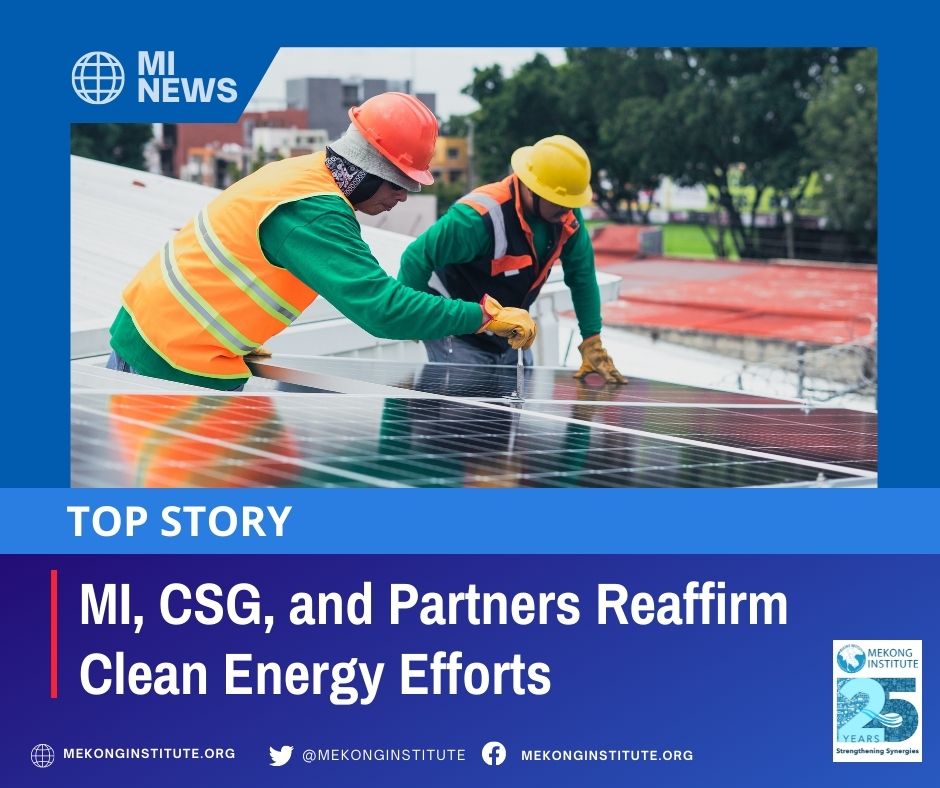“Through regional cooperation, the continued convergence of our countries’ energy complementarities will help us attain energy security and a more balanced approach to climate change.”
This was the statement of Mr. Suriyan Vichitlekarn, Mekong Institute (MI) Executive Director, at the “Lancang-Mekong Power Interconnection and Cooperation Forum” on September 11, 2021, where he reaffirmed MI’s continued support in translating energy policies into action through its capacity development services.
Hosted by the China Southern Power Grid Co., Ltd. (CSG), as one of the key activities of the 18th ASEAN China Expo, the online forum brought together high-ranking officials of energy ministries and organizations from Cambodia, P.R. China, Lao PDR, Myanmar, Thailand, and Vietnam to assess progress of coordinated efforts in deepening power interconnection and promoting green energy development.
Beginning in 1992, GMS countries have been working to sustainably establish competitive regional power markets for the optimization of the subregion’s rich energy resources, while setting enabling policies and frameworks for equitable power trading and the development of integrated grids for broader public access to modern, affordable, and clean energy supplies.
In these efforts, CSG has been a long-term partner of the six member countries. Recognized as one of the leading enterprises that operates sophisticated and technically advanced power grids in the world, CSG has been tapped to support the Belt and Road Initiative by connecting power and energy lines from Asia to Africa and Europe via land and maritime networks to boost the subregion’s international trade activities.
“Energy demands has been steadily increasing because of technological advances and industrial diversification in the region,” Mr. Zhang Wenfeng, CSG Vice President, observed. He explained “that while intensive efforts for wider grid interconnection and power trading are ongoing, opportunities to expand research and practices to institutionalize energy structures towards greener and lower-carbon development remain priorities of CSG.”
Since the early 2000s, MI has provided vital support in advocating the use of renewable energy, energy efficiency, and fossil-fuel, as well as the expansion of investments towards clean energy infrastructure and technologies through trainings, platforms for broad-based dialogues, and research studies.
Recognizing MI’s work in successfully facilitating eight bilateral energy agreements, linking Lancang-Mekong policy leaders with international energy experts, and empowering 410 “power fellows” to advocate clean power connectivity across the subregion, CSG extended the intergovernmental organization’s “Capacity Building on GMS Power Grid Interconnection” project until 2025.
This will see MI deploy activities that will not only strengthen capacities of those in the energy field but the project will also broaden cooperation by enhancing multi-stakeholder engagement for sustainable and equitable clean energy development and practices.








